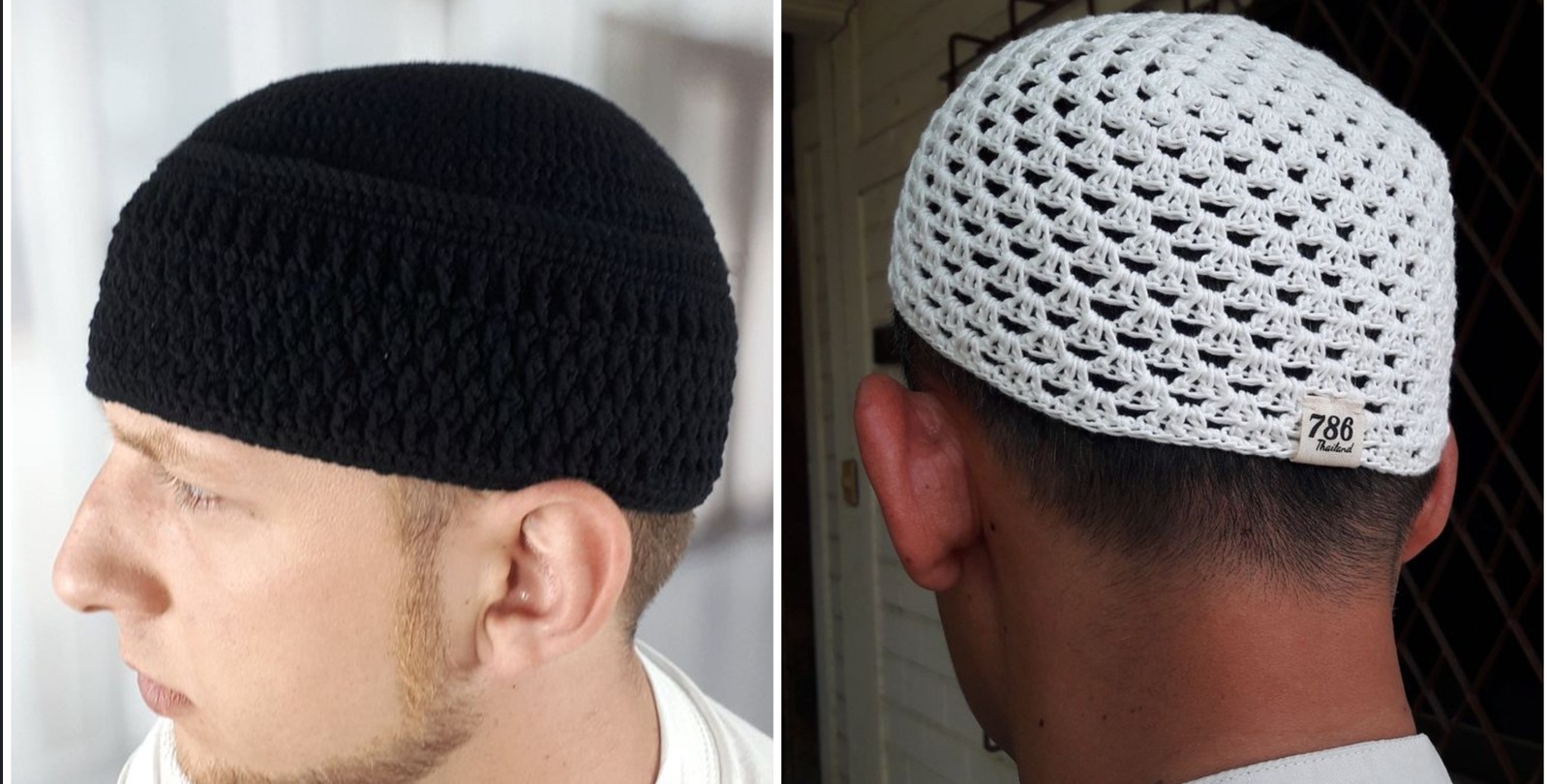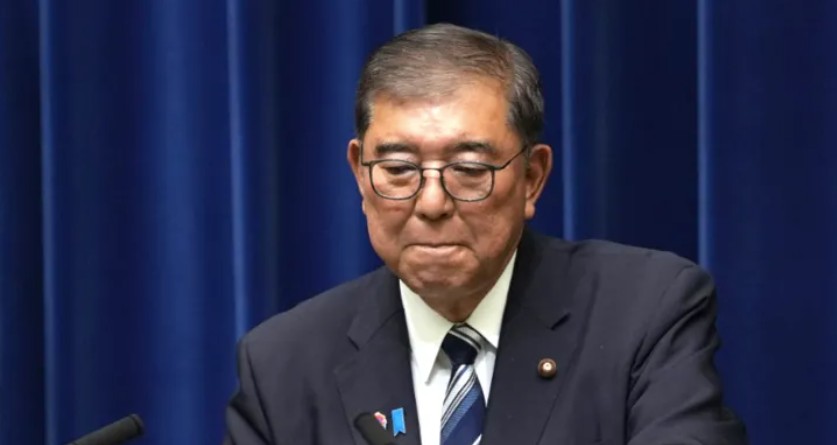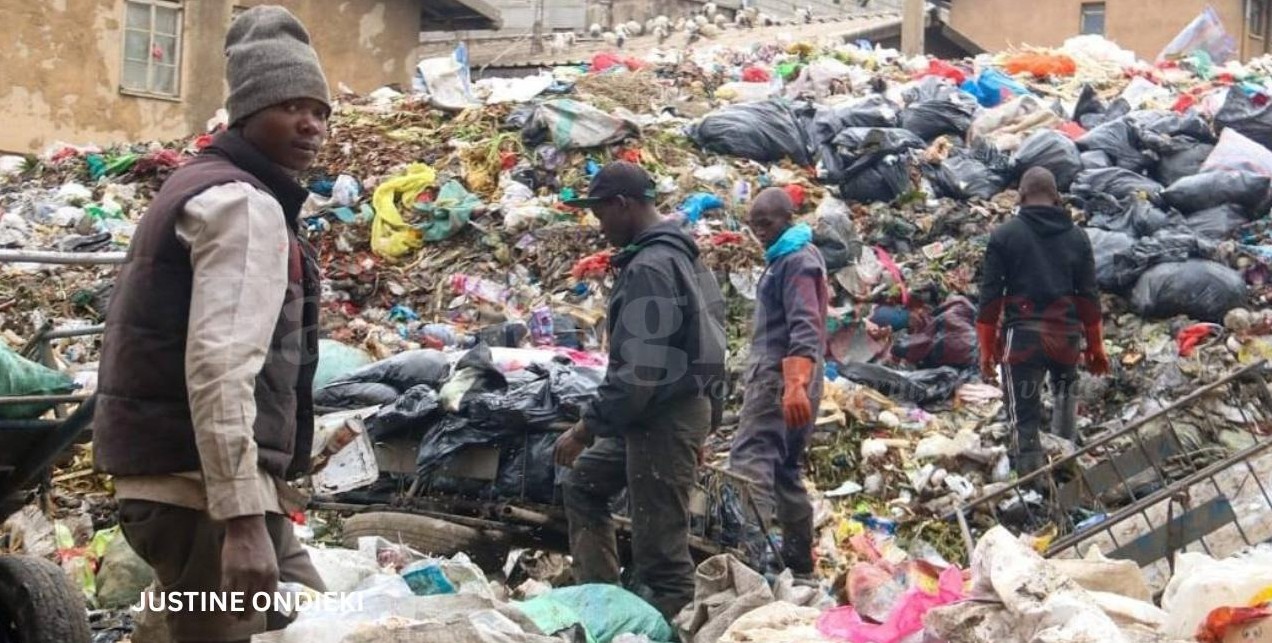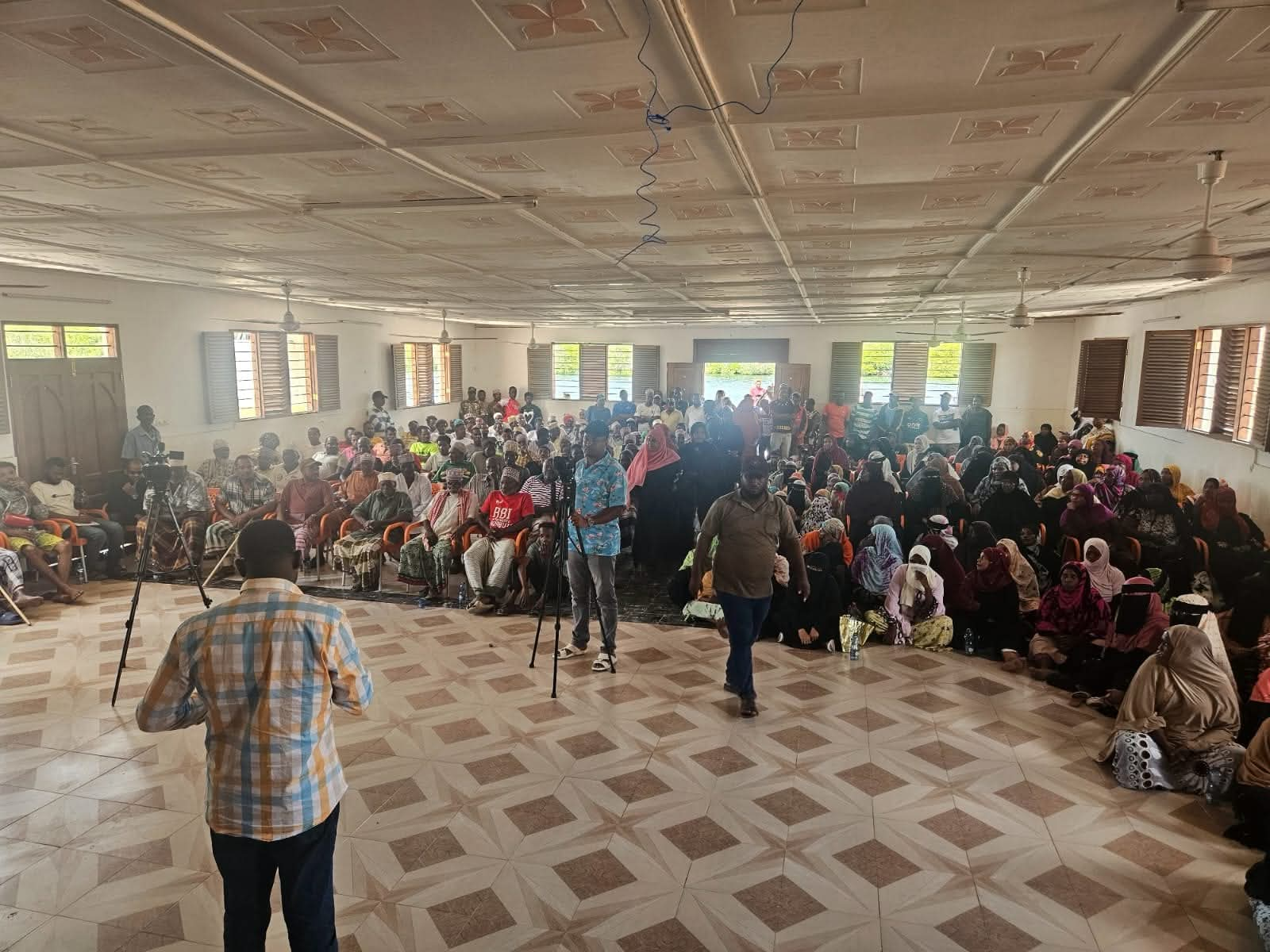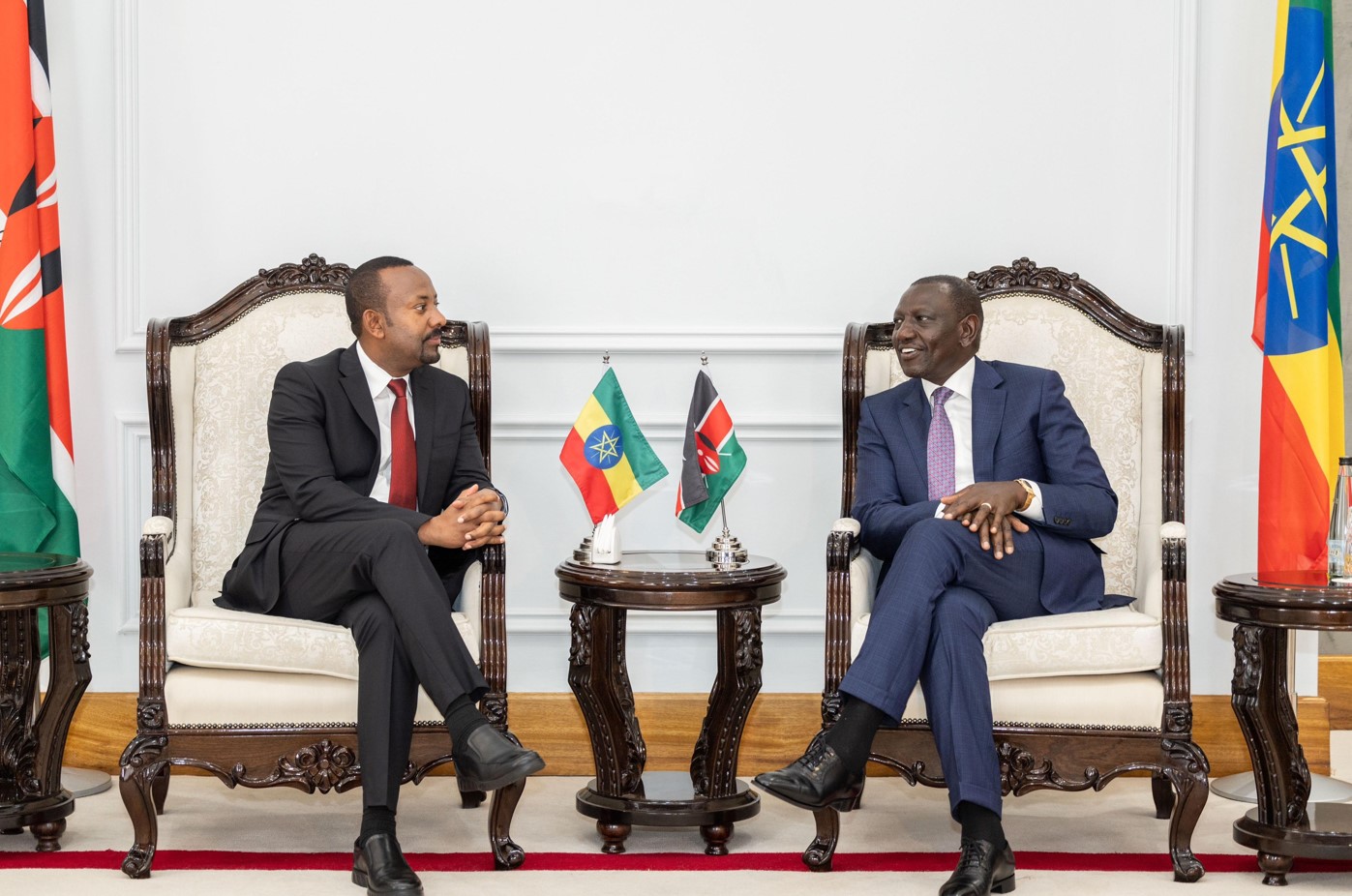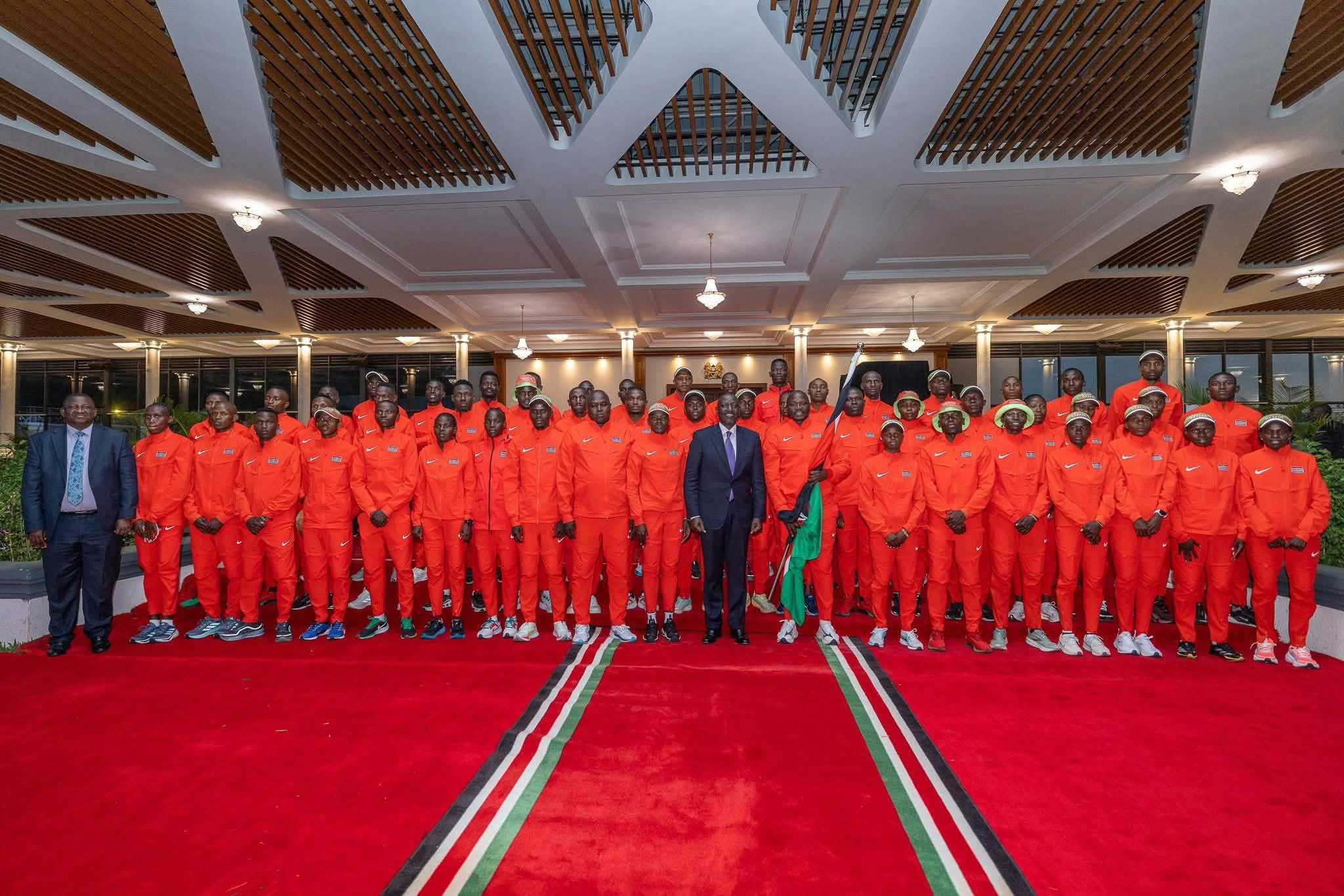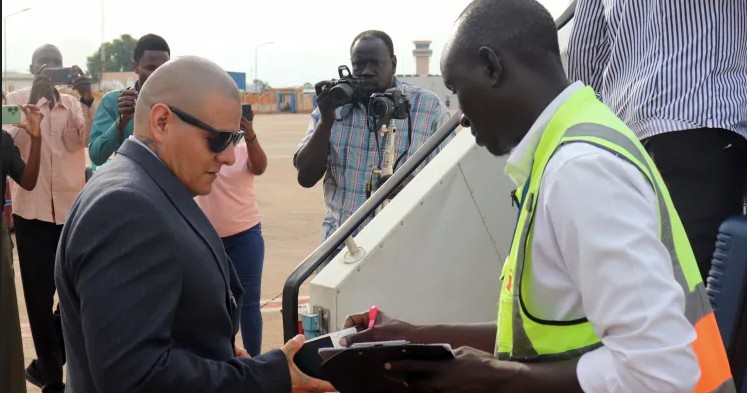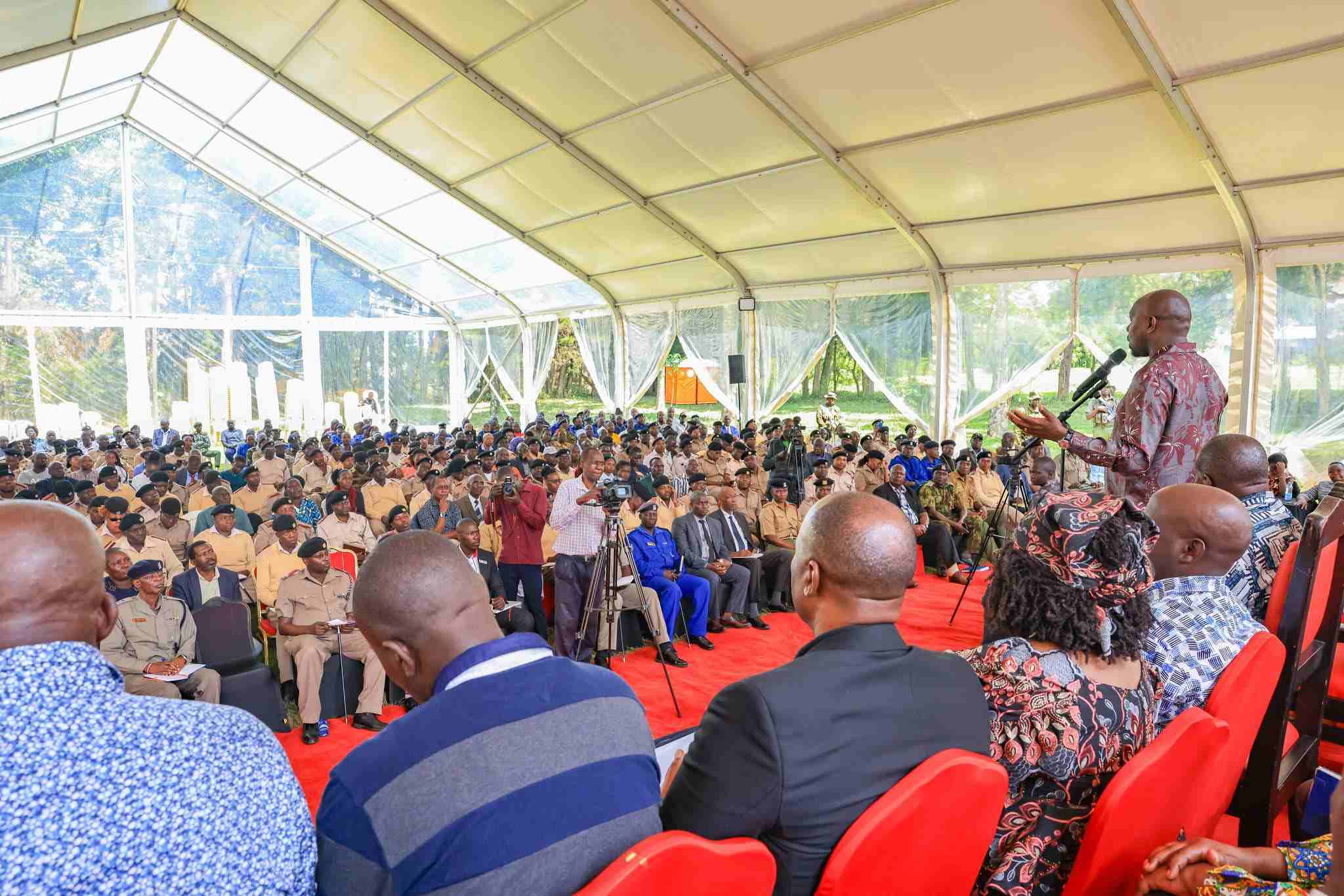Government plans mass burials for Shakahola victims amid DNA identification delays
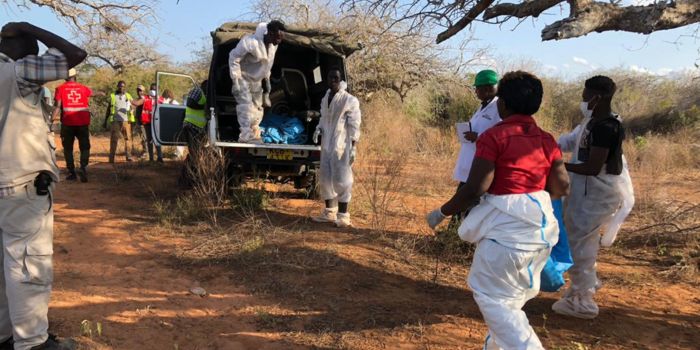
Since the exhumation of 429 bodies from the Chakama forest, the government has collected 336 DNA samples. However, only 66 bodies have been positively identified and claimed by their families.
The government has announced plans to conduct mass burials for the victims of the Shakahola tragedy in Kilifi County to bring closure to families nearly two years after the incident.
Interior Cabinet Secretary Kipchumba Murkomen, speaking to journalists in Mombasa, said the decision was prompted by the low number of families coming forward to provide DNA samples, which has delayed the identification and release of the bodies.
More To Read
- WhatsApp messages reveal how Mackenzie persuaded his followers to abandon homes for Shakahola
- Grieving father testifies on losing 12 family members in Shakahola massacre
- Children’s Officer recounts how minors were rescued from Paul Mackenzie’s followers
- IG Douglas Kanja faces grim reality of Kwa Binzaro exhumations
- Murkomen warns Kenyans against silence on cults as new mass graves found in Kilifi
- 11 suspects arrested in Kwa Binzaro cult probe, Police IG Kanja says many victims are non-locals
“We need to close this discussion of Shakahola. But to do that, we need as many victims’ families as possible to come forward. If you think you lost someone there, please present yourselves so that we can determine whether the DNA samples collected match your relatives,” he said.
Since the exhumation of 429 bodies from the Chakama forest, the government has collected 336 DNA samples. However, only 66 bodies have been positively identified and claimed by their families.
“It has been almost two years, and the government is still facing a challenge in tracing the loved ones of those who died. Many people have not come forward, and this is delaying closure,” he said.
Murkomen explained that the government will explore discussions with the landowner of the forest where the mass graves were found, with the aim of designating a portion of the land for a memorial and burial site.
“We are requesting that the landowner allows the government to take over a section of the site to serve as a permanent burial and remembrance area. The bodies of those whose families are never found will be laid to rest there. If someone comes forward in future, we will have a reference point,” he said.
The Interior CS added that this would also ease the burden on mortuaries in Kilifi, where the bodies have been kept since the mass graves were uncovered.
Mackenzie case
The primary suspect in the case, controversial preacher Paul Mackenzie of the Good News International Church, remains in custody alongside several others.
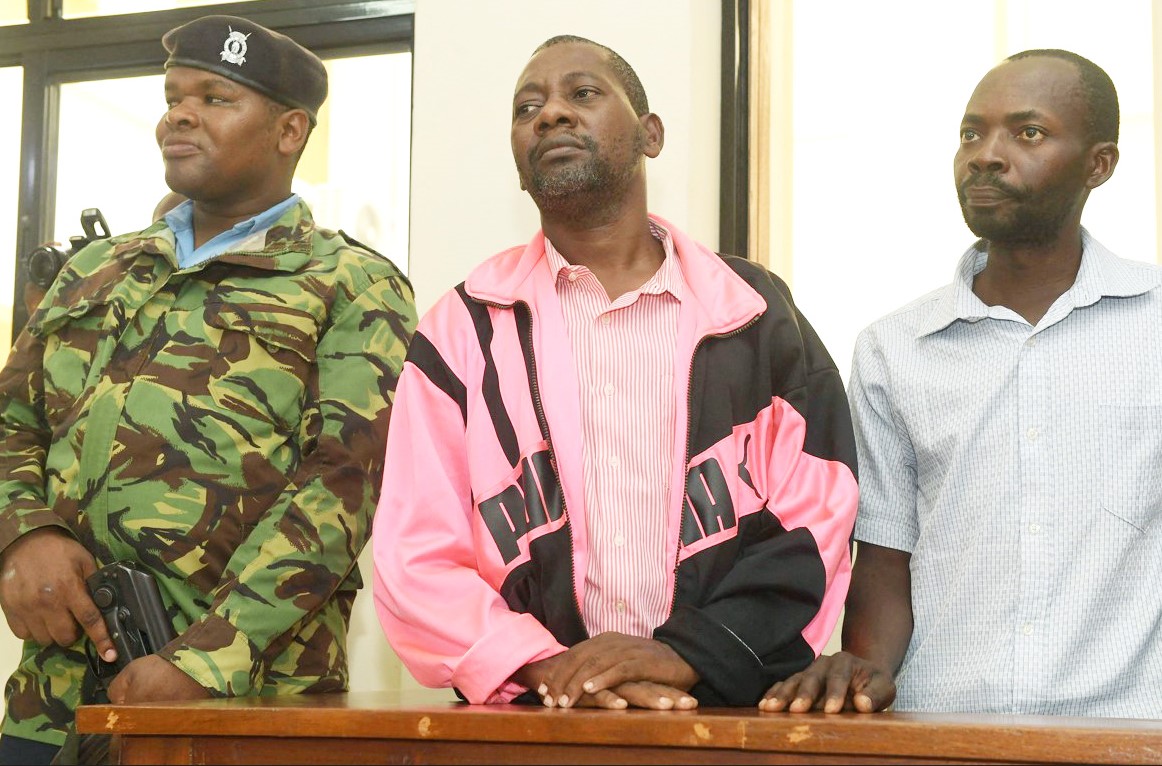 Paul Mackenzie (centre), the prime suspect in the Shakahola massacre at the Mombasa Law Courts on February 20, 2024. (Photo: Farhiya Hussein)
Paul Mackenzie (centre), the prime suspect in the Shakahola massacre at the Mombasa Law Courts on February 20, 2024. (Photo: Farhiya Hussein)
They are facing serious charges, including genocide, manslaughter, terrorism, and child abuse.
Murkomen called on citizens to support the identification process by voluntarily coming forward.
“I want to take this opportunity to encourage Kenyans who believe they lost their loved ones in Shakahola to visit government offices for DNA testing. Without more families coming forward, many of the samples collected will remain unmatched,” he said.
Murkomen clarified that the biggest obstacle has not been funding but the lack of cooperation from the public.
“The major challenge in Shakahola is not money; it is the failure of people to present themselves for DNA matching. So far, 336 DNA samples have been processed, but only 66 bodies have been matched to families,” he stated.
He noted that the government is working to strengthen the capacity of forensic laboratories, including the Government Chemist and DCI labs, by providing more funding and equipment.
“We have a plan to expand and modernise forensic facilities to ensure that future investigations are carried out more swiftly and efficiently,” he said.
Top Stories Today

